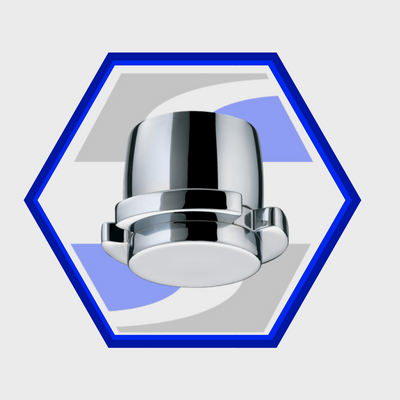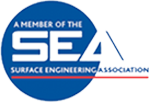Corrosion Resistance of Hard Chrome
.png)

.png)
Hard Chrome Plating is a metal finishing process most often selected for high wear applications, although it is often described as having a ‘good’ resistance to corrosion, what factors would Hard Chrome protect against and what are its weaknesses?
What Is Hard Chrome Plating?
Hard Chrome Plating is an industrial electro-plating process in which components are immersed in an electrolytic solution where a current is run into the bath promoting the build-up of Chromium onto the part. It differs from regular Chrome Plating in that it is used to build up thick deposits over 200 microns. Hard Chrome can be applied to all types of Stainless Steel alloys, most ferrous alloys and even some non-ferrous materials such as Copper and Brass. Common applications include piston rings and valves, motor shafts, machinery parts, fasteners and gears. Most often it is selected to improve wear and abrasion resistance, reduce friction, prevent seizing and galling and in some instance to build up worn areas.
Anodic Protection
Anodic or Sacrificial Protection is the use of a highly reactive metal which is used to protect a less active metal from corroding. Sacrificial Anodes will have a higher electrochemical potential than the metal it is plated on and will be consumed in the place of the metal it is protecting. The most obvious example of this would be Zinc Plating. Hard Chrome is often used to protect Steel components, but is not anodic to Steel and so will not offer sacrificial protection.
Chemical Resistance
Hard Chrome Plating exhibits good corrosion resistance to a variety of chemically corrosive sources including Citric Acids, Nitric Acids, Sodium Chloride and Copper Sulphate. Temperature can however have a big impact on the performance of the coating, for example Hard Chrome will offer good protection against Hydrobromic Acid at 12 Degrees Celsius but poor protection at 57 Degrees Celsius. Another important factor in combatting chemical sources is the thickness of the deposit.
Barrier Layer
Many metal finishing processes protect a component by sealing the base metal from its environment and providing a barrier. Although Hard Chrome does this to some degree it is porous in nature and will often contain micro-cracks the thicker the deposit. Chromium is a hard and brittle metal but as it builds in thickness it will naturally develop a pattern of micro-cracks as the stresses of the material become greater than the strength of the coating. This makes it easier for a corrosive liquid or gas to penetrate through to the base level.
Improved Corrosion Resistance?
If you have an application where you require the properties of Hard Chrome but would like to improve the corrosion resistance then we would recommend first putting down a layer of Nickel, either electro-plated or electroless depending on the end application. This will serve as a base for the Hard Chrome whilst enhancing the corrosion protection of the component.
Silchrome Plating are ISO 9001 and 14001 accredited and offer a wide range of metal finishing processes including Hard Chrome Plating.




